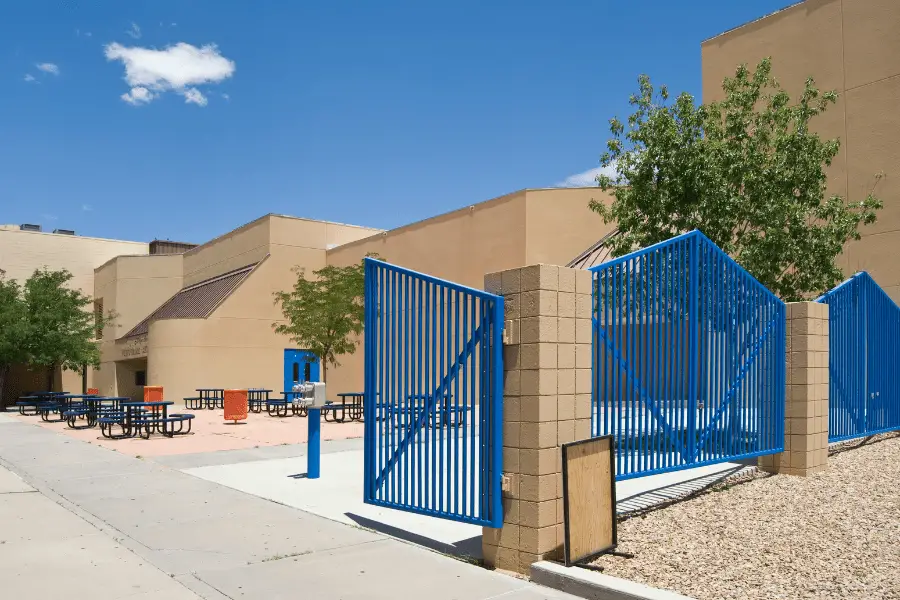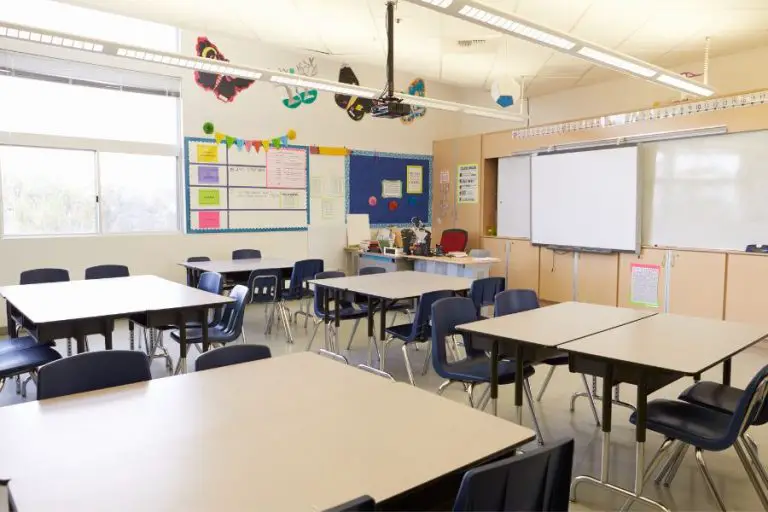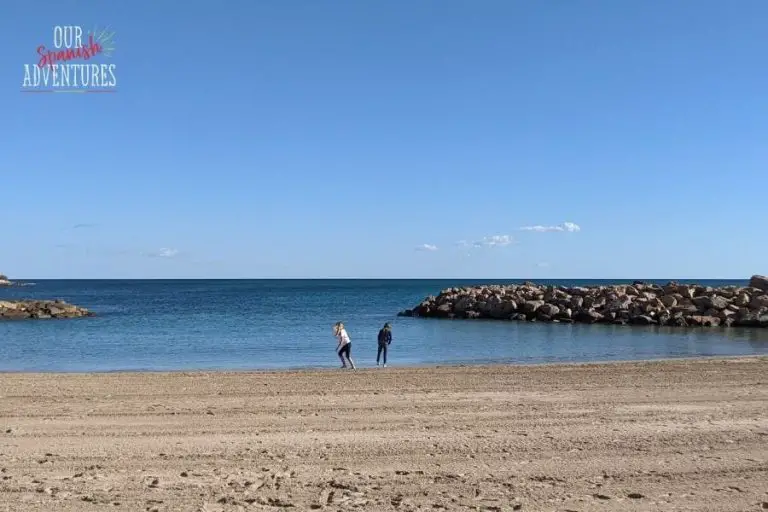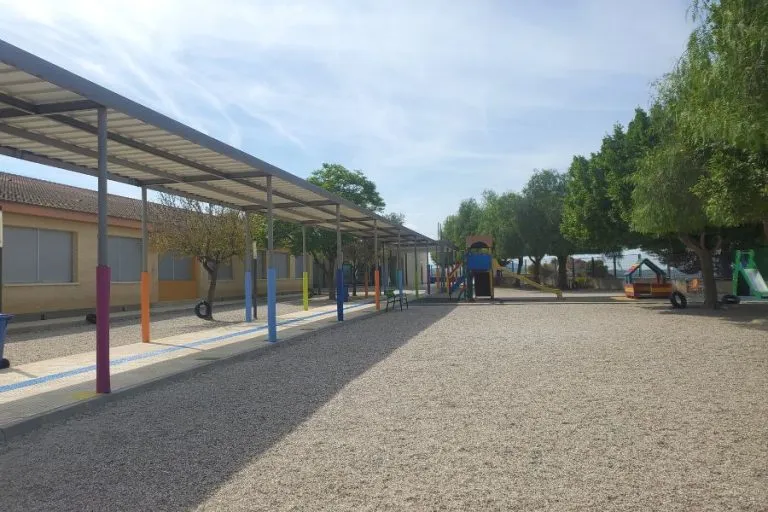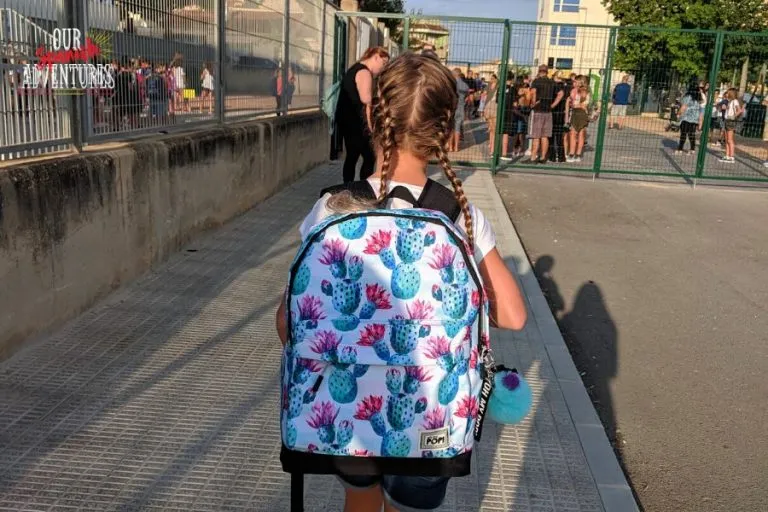Common questions about school in Spain answered
As an expat family who moved to Spain with a young child, we get a lot of messages on social media with questions about school in Spain. These are some of the biggest concerns about moving to Spain permanently for many families.
Many people want to know what school is like in Spain, what types of schools there are, and how long the Spanish school day is, amongst other questions about the Spanish education system.
We have tried to compile the answers to as many Spanish school questions as we can find, to hopefully help you with this daunting part of your move to Spain.
Before you get started you might be interested in our Parents Guide to Spanish Schools!
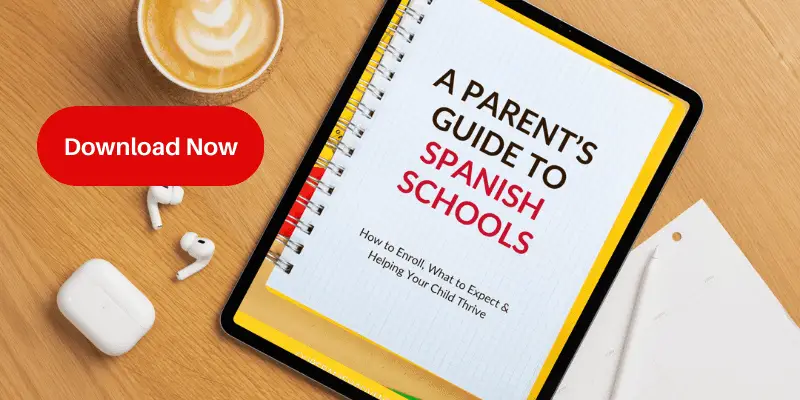
Read on for answers to the most common questions about school in Spain…
Can a non-Spanish child go to a Spanish state school in Spain?
Yes, absolutely! Any child can attend a Spanish state school, there’s no rules around nationality or even language spoken. By default your child will attend the local public school, and they have to make a place available for you. If your child does not speak Spanish they can still join. So if you’re moving to the UK from Spain you can definitely put your children in a Spanish state school.
Do they only speak Spanish at school in Spain?
This will vary by region but generally Castellano (Spanish) is the main language spoken in state schools. In regions such as Valencia or Barcelona you may find that the main language spoken is Valencian or Catalan instead so it is worth considering this when choosing an area to move to. We are in the Valencian Community (Alicante Province) and while Valencian is taught as an additional language, other lessons are all taught in Castellano.
What happens if my child can’t speak Spanish?
Obviously helping your child learn Spanish before you move is the best option, however you’re very unlikely to get them to the fluent stage unless you yourself are a fluent Spanish speaker. From our experience of school in Spain, children will pick up Spanish very quickly.
Our daughter was fluent within 3 years (without the pandemic I’m sure it would have been quicker) and now gets fantastic results – something that seemed a long way away on her first day of school in Spain. We have also seen many other British, Dutch, Belgium, Ukrainian and other nationality kids start school here without speaking a word of Spanish. Schools in Spain have an obligation to help non-native children learn the language and for us this involved extra Spanish lessons at school for 2 years.
You can be rest assured that your children will get a good education in Spain even if they don’t speak Spanish when you move over.
What age do children start school in Spain?
School starts a little earlier in Spain, which is good news for many as that’s less time to pay out for childcare! Most children start school at age 3, although Infant school in Spain is voluntary. Compulsory education at Primary school begins at the age of 6.
Something that was different from us is that all children born in the same year are in the same grade, there is no September-August cut off as in the UK. So for example all children born in between 1st January and 31st December 2015 will be in the same grade, children born 1st January – 31st December 2016 will be in the grade below.
How does the school system work in Spain?
As mentioned above, only primary and secondary education is mandatory in Spain. Compulsory education starts at the age of 6 and lasts until 16. Infant school (Infantil) is from ages 3-6, Primary school (Primaria) is ages 6-12, and Secondary school (Instituto) runs from ages 12-16.
Once a student turns 16 they can decide whether they want to continue with higher education or not. The equivalent of the UK’s A Levels is the Bachillerato, a two-year course that typically runs from 16 -18.
What are the different types of schools in Spain?
There are three types of Spanish schools:
- Public schools (colegios públicos)
- State-funded private schools (colegios concertados)
- Private schools (colegios privados)
When it comes to Private schools you have various options including Spanish, British, International, Norwegian, Dutch etc.
Check out this post on things to consider when choosing a school in Spain.
Should we choose a Spanish public school or a private international school in Spain?
We have a whole post about choosing between public and private schools in Spain, but generally we’d say a Spanish public school is better though it does depend on your situation.
If you think you may return to your home country before your child leaves school then a private International school that follows the same curriculum may be the sensible option.
If you have teenage children then you need to consider whether putting them into Secondary school without being able to speak Spanish will be too difficult at this age. In this case we’d say that again a private school would be better.
If you have Infant or Primary school age children and you intend to stay permanently in Spain then a public Spanish school seems to be a no brainer.
When does the academic year run in Spain?
The start of term in Spain is usually in the second week of September and runs through to around the 21st June. The year is split into three semesters.
Christmas holidays in Spain typically start around 23rd December and end 8th January. Easter is for around 10 days and depends when Easter falls.
What time does school start in Spain?
This will vary on the type of school and the age of the children. In our experience, the day in a public school starts at 9am for Primary and 8am for Secondary.
How long is a typical school day in Spain?
The school hours in Spain seems to differ from region to region. For us, Primary school started at 9am and finished at 2pm. Secondary is from 8am – 1:50pm. These school days both include a 20 minute snack break with lunch eaten at home after school finishes.
Other schools local to us start the same time but finish at 3pm because they have an hour lunch break. Other schools run from 9am – 5pm with a two hour lunch break.
Do children have lunch at school in Spain?
Again this differs from school to school. If a school has a comedor (dining room) the students will usually eat lunch at school and finish a bit later. Schools that don’t have a comedor tend to finish earlier so that children can have lunch at home.
For children who stay at school for lunch, this can either be optional or mandatory. Meals are sometimes provided by the school (for a fee) or children can take their own lunch/snacks.
Is school in Spain free?
The public education in Spain is free for everyone, though parents are usually expected to buy books, stationery, and usually pay for things such as agendas and a contribution towards printing.
You can find a round-up of what you need to pay for at a Spanish school here.
Do children get a lot of homework in Spain?
In our experience, yes! My daughter has definitely had more homework in Primary school than friends’ children back in the UK, but we assume this is down to the shorter day and longer holidays. The level of homework at secondary school seems to be similar to that in the UK.
Do schools in Spain have uniforms?
Public schools in Spain don’t usually have a uniform, while the state-funded private schools and other private schools do.
Are schools in Spain strict?
Yes and no. In terms of teaching we think that things are bit more laid back in Spain, for example kids call teachers by their first names, they can wear anything they want, and there are no rules on hair cuts and colours, all things that are very strictly ruled in UK schools. My daughter also says that the teachers are much more fun and less strict compared to the UK!
In terms of passing subjects, Spain is stricter than the UK. At the end of every chapter in a text book there are tests scored from 1 – 10, with 10 being the highest. A score less than a 5 is a fail.
At the end of the school year the results are tallied up and if more than 3 subjects are failed then the child must repeat the school year. This is something that doesn’t exist in UK schools!
How long are the school holidays in Spain?
When it comes to school holidays in Spain these are quite different to those in UK schools. There are no half term holidays in Spain, the only breaks are at Christmas, Easter and Summer.
Christmas and Easter holidays are 2 weeks each, with the summer holidays lasting 3 months due to the heat! Summer holidays in Spain start at the end of June and last until around 10th September.
We hope that this answers some of your questions about schools in Spain, and gives you some reassurance that putting your child into a Spanish school isn’t quite as impossible as it might seem!
If you have there’s anything else you’d like to know about Spanish schools, feel free to reach out to us on Instagram.

